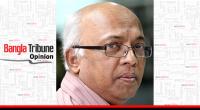 The strongman leader of the Maldives conceded defeat in the presidential election, easing fears of a fresh political crisis in the archipelago at the centre of a battle for influence between India and China. Solih’s victory was a major surprise, what with Yameen’s main political rivals either in prison or in exile, media coverage of the opposition sparse and monitors and the opposition predicting vote-rigging.
The strongman leader of the Maldives conceded defeat in the presidential election, easing fears of a fresh political crisis in the archipelago at the centre of a battle for influence between India and China. Solih’s victory was a major surprise, what with Yameen’s main political rivals either in prison or in exile, media coverage of the opposition sparse and monitors and the opposition predicting vote-rigging.
Once the entire opposition united, there was absolutely no chance for Yameen to win an honest vote. Now, the problem was on the honest vote whether he will deliver or not. This is where the Election Commission despite ITS apparent cooperation with the Yameen Presidency and the security forces perhaps decided not to let him rig the election. Otherwise, such an outcome would not have been possible. The previous changes in the Maldives have taken place with the help of security forces and constitutional institutions like Judiciary and Election Commission.
But the fact remains that perhaps these institutions too had seen the popular resentment against Yameen. After all, there was a great undercurrent of opposition to Yameen and his policies. People were feeling extremely uneasy by his approach to China
The Election Commission hadn’t officially declared the result. It took seven days to declare the result. Are we going to witness a smooth transition of power from Yameen to Solih?
There’ll be a lot of skepticism given the way things played out in recent weeks and also the downward spiralling of not just the institutions but also Maldives own relations with India and western powers including America and European Union. But, in the end, President Yameen made a concession speech on yesterday. This came after he met with the newly elected President Ibrahim Mohamed Solih. In a speech, President Yameen, of course, tried pointing out to the staff what he had for the socio-economic development of Maldives. But the Foreign Ministry of Maldives has gone on the record now with the provisional elections results. The Presidential Twitter handle of Maldives had tweeted and congratulated Ibrahim Solih officially. At this point and time, there’ll be some scepticism whether we will see the transition happening.
We have seen how the transition happened in 2008 and in 2013. There had been concerns Yameen might not accept the results given what happened after the last election in 2013.
Circumstances were different. There were internal equations. But, he immediately cleared that he (President Yameen) will be in office till 17th of November. It’s only thereafter that power will be handed over to Mr Solih. In between, they’ll have to work out if there’s any exit for him, which looks pretty difficult and improbable.
On a different and more serious note, 17th November is very still far off. Two, this is a mumbo-jumbo opposition. Everybody has joined just to throw him out. Once he is thrown out, the question would be sharing the power- cake: who gets what?
Two or three very powerful contenders ( Nasheed is one, Yameen’s brother Maumoon Abdul Gayoom is another one and THE third one is Adalat party chief). Unless there’s harmony between them how to take power and to distribute what to whom, Yameen may not still become hopeful of exploiting their contradictions. So much depends this opposition unity remaining stable so far as transfer of power is concerned.
Having said that let’s then broaden this discussion and consider China, it wouldn’t be very easy to push the Chinese out. Chinese are not a push-over.
Cases in point: some analysts hope that once Mahinda Rajapakshe was lost out in Sri Lanka, the whole matrix of Sino-Sri Lankan relations would be redefined. It hasn’t been redefined substantially in any way. In Nepal, one hydro-power project was rejected; yet they managed to revive one of their projects. In Pakistan, there’s a debate about CPEC (China- Pakistan Economic Corridor), but still, substantial projects are continuing there. In a way, there’s a debate within China, whether of the BRI (Belt and Road Initiatives) investments would be recovered and how they would be realized. Even the Chinese are pondering how fast to go into these projects or whether to go very slowly. But, make no mistake that the Chinese are not going to get out very easily; they have invested heavily in it. They have stakes which are very powerful because of Maldives' strategic location beside India and all that.
To begin with, it is important to correct the distortion in the institutional mechanisms of the Maldives which were introduced as far as Solih and other leaders of Maldives are concerned. The Judiciary is totally humiliated and used as a tool. The Election Commission, Armed Forces, and all these democratic institutions will have to be set right. That’s why the president-elect had probably asked for the leaders who have been arrested and kept in the prison unnecessarily to be released. If the former leader now accepts that what he did was wrong then he will have to behave far more softly rather than creating problems for everyone.
Finally, while looking at China and India, don’t forget the influence of U.S. and UK which is critical. Particularly, Nasheed all along his presidency kept his close advisors from Britain. And, one of the reasons why India pussy-footed when he was being thrown out was that he was seen as closer to U.S. and UK. Probably, he will give greater access to these countries.
Md. Sharif Hasan works as a field researcher for the Centre for Genocide Studies (CGS) at the University of Dhaka.
 Opinion
Opinion
30963 hour(s) 37 minute(s) ago ;
Evening 10:31 ; Sunday ; Apr 28, 2024
Maldives votes for change
Send
Md Sharif Hasan
Published : 11:48, Sep 29, 2018 | Updated : 11:57, Sep 29, 2018
Published : 11:48, Sep 29, 2018 | Updated : 11:57, Sep 29, 2018
0 ...0 ...
/ab/hm/
***The opinions, beliefs and viewpoints expressed in this article are those of the author and do not reflect the opinions and views of Bangla Tribune.
- KOICA donates medical supplies to BSMMU
- 5 more flights to take back British nationals to London
- Covid19: Rajarbagh, Mohammadpur worst affected
- Momen joins UN solidarity song over COVID-19 combat
- Covid-19: OIC to hold special meeting
- WFP begins food distribution in Cox’s Bazar
- WFP begins food distribution in Cox’s Bazar
- 290 return home to Australia
- Third charter flight for US citizens to return home
- Dhaka proposes to postpone D8 Summit
Unauthorized use of news, image, information, etc published by Bangla Tribune is punishable by copyright law. Appropriate legal steps will be taken by the management against any person or body that infringes those laws.
Bangla Tribune is one of the most revered online newspapers in Bangladesh, due to its reputation of neutral coverage and incisive analysis.
F R Tower, 8/C Panthapath, Shukrabad, Dhaka-1207 | Phone: 58151324; 58151326, Fax: 58151329 | Mob: 01730794527, 01730794528


